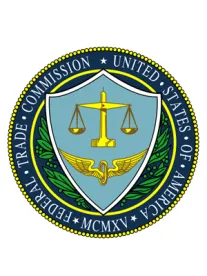The FTC approved amendments to its Energy Labeling Rule, adding portable air conditioners to the class of appliances requiring yellow EnergyGuide labels effective October 1, 2022, and updating energy efficiency descriptors for central air conditioning units. The vote to approve the Rule was 4-1, with a concurring statement from Commissioner Chopra and a dissent from Commissioner Wilson. These two statements reflect deeply divergent views of the FTC’s role that everyone—not only air conditioner manufacturers—should keep in mind.
Commissioner Chopra’s concurring statement celebrates the gains of the amendments, but encourages the FTC to do more to “combat practices that harm consumers, distort competition, and undermine national goals on energy independence and climate change.” Specifically, he points to three areas for more aggressive FTC action in the energy field:
-
Attack the practices of “cramming,” piling hidden fees on consumers, and “slamming,” switching a consumer to a different energy supplier without their consent.
-
Penalize companies for “greenwashing” their products, giving consumers a false impression of environmental friendliness.
-
Stop anti-competitive mergers through enforcement and policymaking.
Chopra also took the Department of Energy to task for delaying required updates to efficiency standards, which the FTC uses to update its EnergyGuide labeling and other programs. This delay—which private litigation succeeded in ending in 2019—slowed updates to this and presumably other rules.
Commissioner Wilson’s dissent takes a much different perspective: The amendments are not a charge to take more aggressive action to protect consumers, but rather an outdated requirement on industry.
Although the amendments largely concern only portable air conditioners, the Rule itself covers EnergyGuide labels for nearly every household appliance. In Commissioner Wilson’s view, now is the time for the FTC to review and update labeling standards for all appliances. She challenges the “prescriptive elements” of the Rule, which set out particular requirements for EnergyGuide labels like font size and typeface. These requirements, according to the Commissioner, are unnecessarily restrictive and no longer beneficial to consumers because of changes in modern shopping habits. A QR code, for example, might replace the traditional EnergyGuide labels. The FTC’s statement does address some of these suggestions, but as this would be a radical change to the Rule, it left further deliberation to later proceedings.
In a sense, both Commissioners Chopra and Wilson see the amendments as pivot points to something much broader: in Commissioner Chopra’s case, more aggressive consumer protection action, and in Commissioner Wilson’s, more flexibility to industry. It remains to be seen what turn a future FTC will take.
Sam J. Thomas contributed to this article.




 />i
/>i
